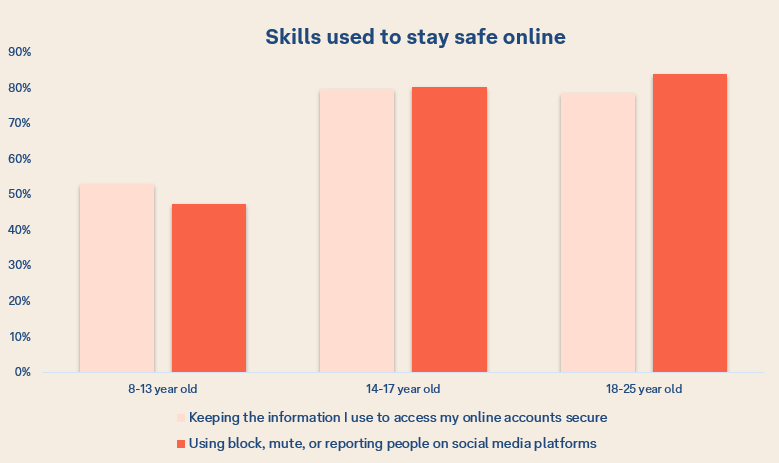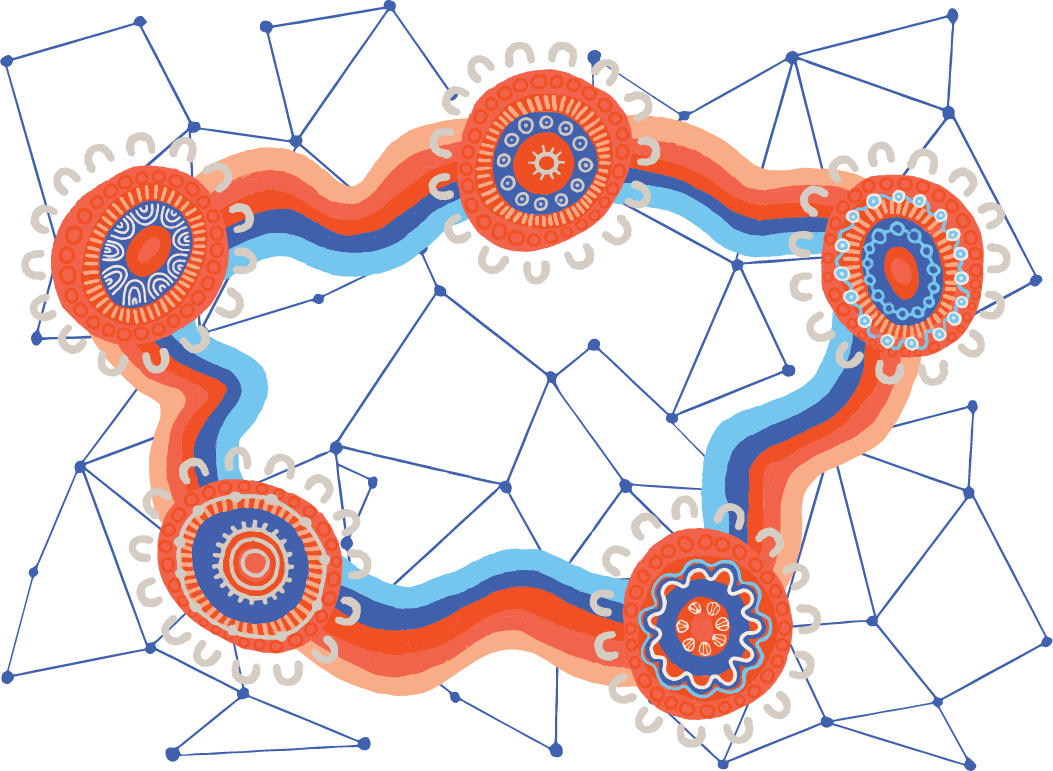- Joshua Flack - Chief Research Officer, Wallis Social
Wallis Research researcher Joshua Flack discusses some of the insights from young people around what it means to be a good online citizen and how they protect themselves when others are not.
Exposure to unsafe content is a reality for most young people, but pleasingly, most young people told us they still felt confident in their ability to stay safe online.
Only 28% of young people said they had never experienced anything upsetting online when completing the survey component of our research for the Australian Youth Digital Index. Half (50%) of young people said they had been exposed to scams, two-in-five (39%) had been exposed to sexual content, and 35% mentioned fake news, misinformation or disinformation.
However, both the quantitative (survey) and qualitative (interview/focus group) aspects of the research suggest young people have developed a range of ways to navigate this unsafe content, while also developing their views on how they can be good online citizens themselves. Most (80%) young people agree that they know what it means to be a good person online, however, fewer agree that the people they interact with behave well (69%).
While younger children frequently associated being a “good person online” with fairness and respectfulness in gaming, older participants provided more nuanced descriptions and examples of what the term might convey. Their examples included actions like speaking out against harassment, hate speech, and misinformation, as well as actively reporting harmful online content. These behaviours reflect a deeper understanding of the complexities of online interactions and the responsibility to contribute to a safer, more respectful online space.
We also saw that online safety skills improved significantly with age. Almost twice as many in the 18-25 year old group, for example, were confident blocking, muting, or reporting people on social media platforms compared with the youngest cohort of 8-13 year olds (47%).

This was also highlighted by youth workers we interviewed. Social workers interacting regularly with young people suggested exposure to online safety at school helped young people gain skills and confidence in dealing with bad behaviour online.
“So say with online bullying, they might be more aware of how they can still stay connected with their friends or other people online while putting in parameters to stop them getting bullied, whether it’s blocking other people or having a separate account that only has their closest friends on it.” Social Worker, Community Service Organisation
A common behaviour across all ages and genders was the active decision to avoid people or content that wasn’t positive or supportive. From a young age children seemed to be taught to avoid or ignore negative behaviour online, such as when others weren’t being ‘good people’.
“… if it was, for example, like Roblox, I’d just leave the game and just don’t talk to them or anything.” Parent with Young person, Female, 8-13 years old
Young people also understood the permanence of actions on the internet, noting that what is shared or said online can have lasting consequences, both for others and themselves.
“… it could come back to bite you if you say something you regret later. So being a good person online helps avoid you…behaving in ways that could potentially hurt you down the track.” Young person, Male, 14-17 years old
“If you did do bad stuff on the Internet, you don’t know how it’s going to affect someone and it could affect someone really badly.” Young person, Female, 18-25 years old
Some also saw good online citizenship as taking a proactive approach to highlighting important issues and inspiring action, using the platform to promote social justice and effect positive change. This reflects the reality that for young people, the internet is not something separate from their daily lives, but inextricably linked. Being online is a source of information, a place to share information, a place to find a community of like-minded peers and even a tool to take on an activist role.
“If there’s something really important … and I feel like there’s people that might not be [aware], then I think it’s important to share those sorts of things if it can potentially help people or a charity organisation, whether it’s environmental or animal based.” Young person, Female, 18-25 years old, LGBTQIA+
The Australian Youth Digital Index highlights that young people are not only aware of online risks but are also actively defining what it means to be a responsible digital citizen. Their skills go beyond self-preservation; they reflect a shared sense of accountability for creating a safe and positive online environment where respect, empathy, and authenticity are valued.
For young Australians, the digital world is an extension of their lives, offering opportunities to connect and inspire positive social action. By fostering digital resilience and encouraging responsible online behaviour, we can support young people in shaping a future where technology serves as a force for good.
Being a good person online is creating a safe environment for others as well as being willing to speak about problems with internet, like hate speech and harassment ... it comes down to being open to discussion and new ideas, [not] aggressive, but firm when it comes to problematic stuff like hate speech and misinformation. Speaking out against harassment, combating misinformation, either directly by stating that it is wrong and why, or indirectly by reporting it and directing other people away from it.
- Young person, Male, 14-17 years old, First Nations
To look at all the data from Telstra Foundation’s Australian Youth Digital Index explore the Dashboard on this site.


